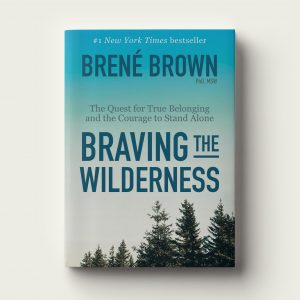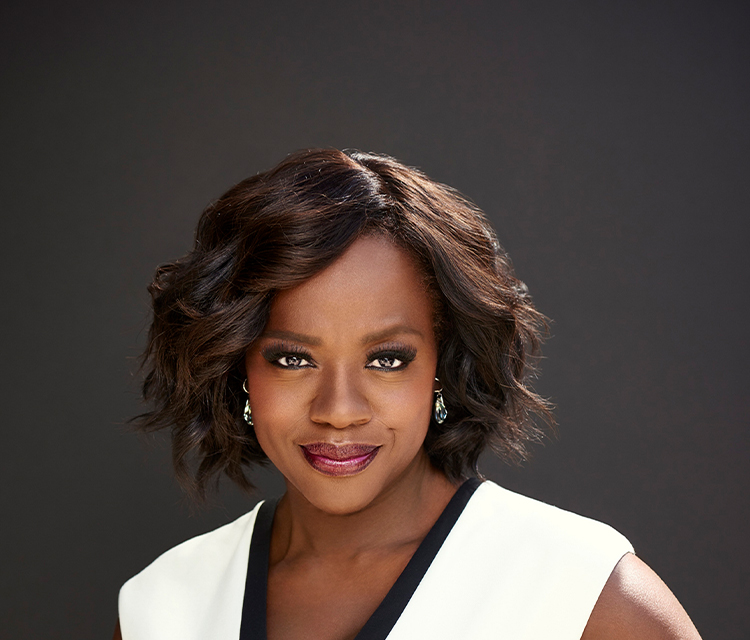
I had the incredible opportunity to interview Viola Davis for my last book, Braving the Wilderness. You may know Viola from her performances in The Help, How to Get Away With Murder, and Fences (for which she won an Oscar for best supporting actress). She is the first Black actor to win the Triple Crown of acting—the Emmy, Tony, and Oscar. In 2017, she was listed by Time magazine as one of the 100 most influential people in the world.
Viola’s story exemplifies the power of courage in the face of pain, vulnerability in the face of fear, and how living and loving close up leads to true belonging. Her words changed things in me. Especially the piece about not adding other people’s criticism to my load.
This is where I’d normally transition from my introduction to the actual interview with a quick note to “Read and enjoy!” For the wisdom that Viola so generously shares here, I’ll change it to: Absorb. Appreciate. Liberate.
Excerpted from Braving the Wilderness
When I asked Viola to tell me about the beginning of her journey into true belonging, she told me, “I spent the first three-quarters of my life feeling like a square peg in a round hole. I did not physically fit in. I lived in an Irish Catholic area of Rhode Island—white girls with long blond hair. I was a kinky-haired girl with dark skin who spoke different. I wasn’t pretty. I carried the trauma of growing up in abject poverty—the daughter of a violent alcoholic. I was a bed-wetter until I was twelve or thirteen. I smelled. Teachers complained about the smell and sent me to the nurse’s office. I was wrong. This was my beginning.
“My language for belonging was about survival: Can I take a hot shower? Is there food today? Will my dad kill my mom? Will there be rats in the house?
“I had no tools—I carried this trauma, fear, anxiety, and the inability to speak up for myself into my adult life. All of it was deeply rooted in shame. I spent all of my energy hiding and keeping the brutality of my life secret. I carried this dysfunction with me into my adult life.”
Then I asked her to tell me about taking her first steps into her wilderness. She said, “I knew I was afraid of confrontation, but it wasn’t until I started doing therapy that I realized why the anxiety made speaking up almost impossible. I had an experience where I should have confronted someone who was doing something horrible to me. What I realized was, in that moment, I flashbacked to my fourteen-year-old self. I was holding my baby sister and my father was stabbing my mother in the neck with a pencil. I shouted, ‘Stop it! Give me that pencil!’ He did it. My father stopped and handed me the pencil. I was a child who was forced to confront an adult. I had to take the power position before I should have needed to and before I was ready. I paid for it in fear.”
Viola is someone who’s made the transition from fear of the wilderness, to braving the wilderness, to becoming the wilderness. I wanted to know how that happened.
“At thirty-eight, things changed. I didn’t jump out of bed one morning and everything was perfect. I’ve always known I was a strong woman, but I wanted ‘fast-food joy’—quick, easy joy. More tools and tricks. I also could still fall back into ‘not enough—not pretty enough, not thin enough, not good enough.’ One day my therapist asked me a pivotal question: ‘What if nothing changes—your looks, your weight, your success—would you be okay?’ For the first time, I thought, You know what? Yes, I would. I really would.
“This is when I realized that the past was not going to define me.
“I also got married to an amazing man who really saw me. He was my gift for working so hard on myself. He was kind and I was finally vulnerable and open to that.”
I asked her, “When you belong to yourself there is always going to be criticism. What’s your experience with that?” Viola replied, “Acting culture can be brutal. The notes can simply say, ‘Not attractive enough. Too old. Too dark-skinned. Not skinny enough.’
“They tell you to develop a thick skin so things don’t get to you. What they don’t tell you is that your thick skin will keep everything from getting out, too. Love, intimacy, vulnerability.
“I don’t want that. Thick skin doesn’t work anymore. I want to be transparent and translucent. For that to work, I won’t own other people’s shortcomings and criticisms. I won’t put what you say about me on my load.”
I’m not sure there’s a more poignant example of someone who was able to recognize her pain, own her story, and write a new ending that includes transforming her pain into compassion for others.
I don’t want that. Thick skin doesn’t work anymore. I want to be transparent and translucent. For that to work, I won’t own other people’s shortcomings and criticisms. I won’t put what you say about me on my load.
Viola Davis
“I held my dad’s hand as he died,” she told me. “He died of pancreatic cancer. We had healed our relationship; we loved each other very much. When my sister and I sat with him we learned that he hated his work his entire life. For decades he groomed horses at a racetrack. We never knew he hated it. He had a second grade education. He also worked as a janitor. We never knew that’s how he felt. It was devastating for us to think about the pain he endured his entire life.
“There’s an unspoken message that the only stories worth telling are the stories that end up in history books. This is not true. Every story matters. My father’s story matters. We are all worthy of telling our stories and having them heard. We all need to be seen and honored in the same way that we all need to breathe.”
Viola Davis is the wilderness. I asked her if true belonging took the shape of a practice for her. She said, “Yes. Today, I live by a few simple rules:
- I’m doing the best I can.
- I will allow myself to be seen.
- I apply the advice an acting coach gave me to all aspects of my life: Go further. Don’t be afraid. Put it all out there. Don’t leave anything on the floor.
- I will not be a mystery to my daughter. She will know me and I will share my stories with her—the stories of failure, shame, and accomplishment. She will know she’s not alone in that wilderness.
“This is who I am.
“This is where I am from.
“This is my mess.
“This is what it means to belong to myself.”
